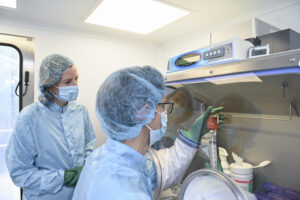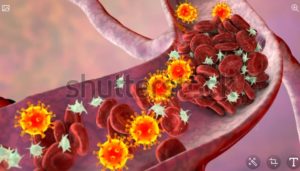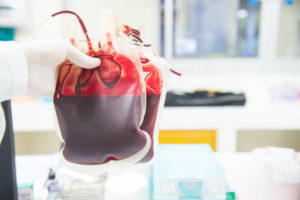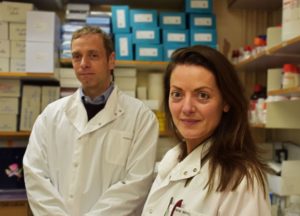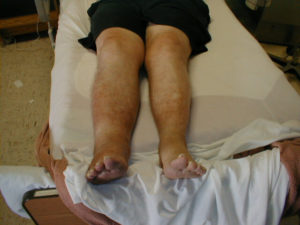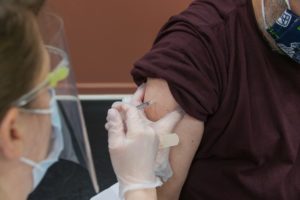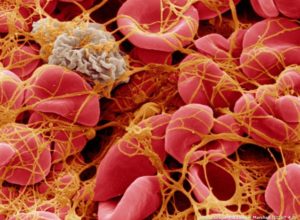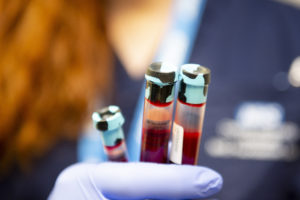The first patient has been treated in Oxford in the second phase of an international clinical trial testing a new gene therapy for Stargardt disease - a rare inherited eye condition that leads to progressive vision loss and eventually blindness in children and adults. The ASTRA trial is ... READ MORE
News for Gene and Cell Therapy
Oxford to play key role in two new MRC gene therapy centres
The Medical Research Council (MRC), part of UKRI, is launching its first two Centres of Research Excellence (CoRE), which will develop transformative new advanced therapeutics for currently untreatable diseases. Oxford is leading one of these centres and co-leading the other. Together, these ... READ MORE
Oxford professor named among world’s top 100 ophthalmologists
The Oxford BRC’s Theme Lead for Gene and Cell Therapy, Professor Robert MacLaren, has been ranked in the top 100 ophthalmologists worldwide for 2024 by the international Ophthalmologist magazine. The ranking was based on votes from key leaders across ophthalmology, academia and ... READ MORE
Workshop explores CRISPR gene editing potential
The NIHR Oxford BRC’s Gene and Cell Therapy Theme has organised its second workshop to discuss how researchers from a range of disciplines are using new CRISPR gene editing tools or applying CRISPR to their research in innovative ways. The workshop, held on 4 July at Merton College in Oxford, ... READ MORE
Oxford BRC researcher named NIHR Senior Investigator
NIHR Oxford BRC researcher Professor Ronjon Chakraverty has received a prestigious national research award. Professor Chakraverty, Professor of Haematology in the Radcliffe Department of Medicine and Oxford BRC Co-theme Lead for Gene and Cell Therapy, was named a National Institute of Health ... READ MORE
New Pharmacy Clinical Trials Unit paves way for trialling new therapies
Oxford University Hospitals’ (OUH) ability to help develop ground-breaking new therapies has been given a boost with the opening of a new temporary Pharmacy Clinical Trials Unit (CTU). Based on the Churchill Hospital site, the facility will be used to handle and prepare a new range of medicines ... READ MORE
Researchers from different BRC themes discuss CRISPR gene editing
The NIHR Oxford BRC’s Gene and Cell Therapy Theme has organised a workshop to discuss how researchers from a range of disciplines are using new CRISPR gene editing tools or applying CRISPR to their research in innovative ways. The workshop, held on 20 June at Merton College in Oxford, attracted ... READ MORE
Beacon Therapeutics launched to develop new generation of gene therapies for retinal diseases
A new ophthalmic gene therapy company, which aims to restore and improve the vision of patients with retinal diseases, has been launched. Beacon Therapeutics will develop a new generation of gene therapies to treat a range of rare and more common retinal diseases that result in blindness. The ... READ MORE
Higher risk of blood clots in COVID-19 outpatients, largely reduced after vaccination
Researchers supported by the NIHR Oxford Biomedical Research Centre (BRC) have studied the link between people diagnosed with COVID-19 as outpatients and the short-term risk of developing blood clots, and the clinical and genetic risk factors that predispose them to developing post–COVID-19 ... READ MORE
Three new Blood and Transplant Research Units created in Oxford
The NIHR has awarded three new Blood and Transplant Research Units (BTRUs) to the University of Oxford. The £20m programme, co-funded by the National Institute for Health and Care Research (NIHR) and NHS Blood and Transplant (NHSBT), are aimed at providing new technologies, techniques or ... READ MORE
Spin-out company Alethiomics launched
A new Oxford-based drug-discovery company has been launched with the aim of developing targeted therapies for a specific family of blood cancers. Alethiomics was founded by Oxford BRC-supported researchers Professor Adam Mead and Professor Beth Psaila, with support from Oxford ... READ MORE
New atlas reveals pre-birth development of blood cells in bone marrow
A new study has provided the most detailed analysis so far of the prenatal development of blood and immune cells in the bone marrow. The study, published in Nature, is part of the Human Cell Atlas (HCA) initiative to provide comprehensive reference maps of every cell type in the human ... READ MORE
Researchers develop algorithm to diagnose deep vein thrombosis
Researchers are developing an artificial intelligence (AI) algorithm to diagnose deep vein thrombosis (DVT) more quickly and as effectively as traditional radiologist-interpreted diagnostic scans, potentially cutting down long patient waiting lists and avoiding patients unnecessarily receiving drugs ... READ MORE
Study investigates responses to COVID-19 treatment in chronic lymphoid leukaemia patients
The COVID-19 pandemic has led to understandable anxiety within the blood cancer community about how their illness may affect their ability to overcome COVID-19 infection. Members of the Oxford Centre for Haematology have led a collaborative research project looking at the response of patients ... READ MORE
Impaired antibody response to COVID-19 vaccination in patients with myeloid blood cancers
Oxford researchers have found that antibody responses to the first doses of COVID-19 vaccine in people with chronic myeloid blood cancers are not as strong as those among the general population. While this is expected to improve with the second dose, this important finding may help influence ... READ MORE
New trial PROMises hope for patients affected by myelofibrosis
A new clinical trial has been launched to offer a novel treatment option for patients with the blood cancer myelofibrosis (MF). The PROMise trial, launched by the Cure Leukaemia-funded Trials Acceleration Programme, will involve patients aged 16 or over at 15 NHS centres, including Oxford’s ... READ MORE
Oxford researchers meet patients to discuss new Advanced Cellular Therapies Centre
Oxford researchers have met with members of the Oxford Blood Group to discuss plans for an Advanced Cellular Therapies Centre. Plans for the creation of an Oxford Advanced Cellular Therapies Centre have been supported by NIHR Research Capability Funding. The proposed centre will bring together ... READ MORE
Eight BRC projects get RCF funding
Eight Oxford BRC proposals, many covering a number of themes, have been awarded NIHR Research Capability Funding (RCF) funding to take forward key areas of research. The selected projects that will be supported include: Developing a research centre devoted to urgent and acute careThe ... READ MORE
Test developed to identify new-borns at risk of leukaemia
Oxford researchers have developed a new method to quickly identify cancerous cells in babies at risk of leukaemia. The team hope that the new protocol could make rapid testing more accessible for clinical laboratories around the globe. Until now, the only reliable way to know if a baby with ... READ MORE
Serum iron may be useful biomarker to identify COVID-19 disease severity
A new study led by University of Oxford researchers has found that patients with severe COVID-19 respiratory failure have very low levels of iron, compared to those with less severe disease. Changes in iron levels have been associated with worsening disease for other viral infections such ... READ MORE




